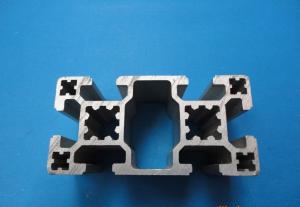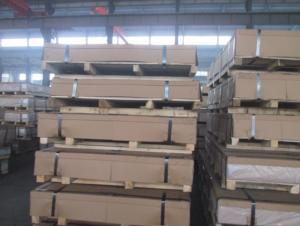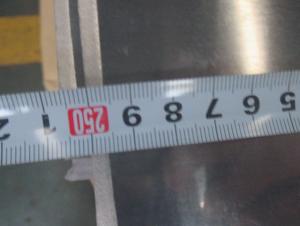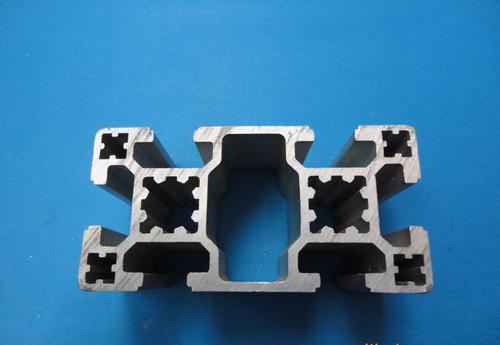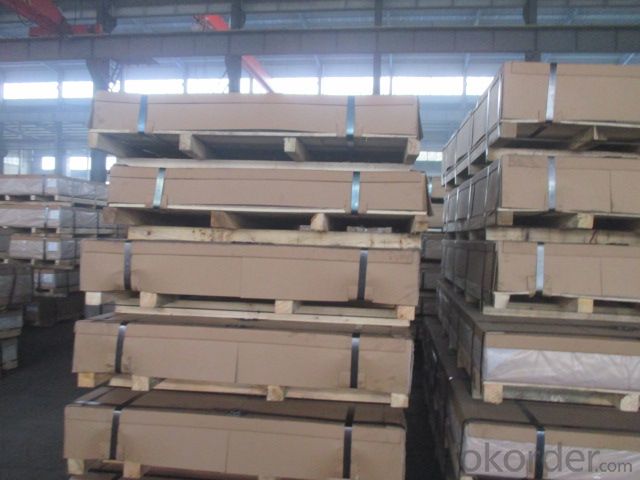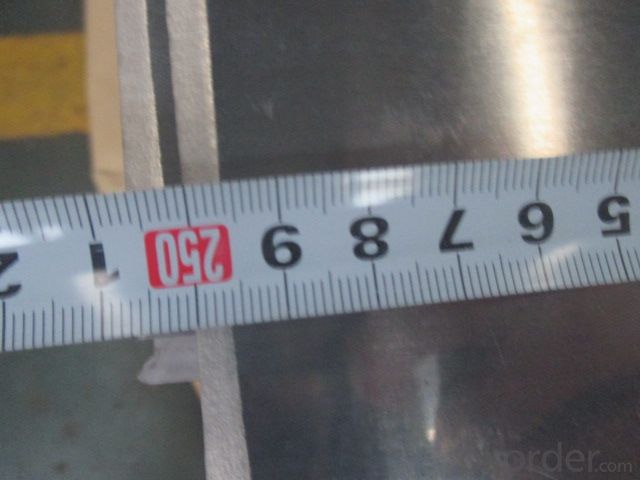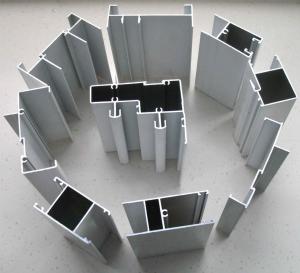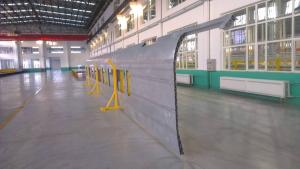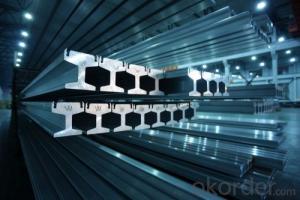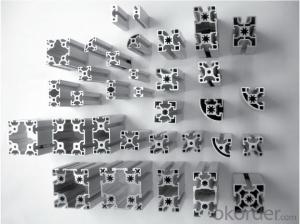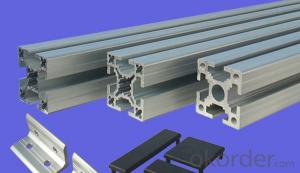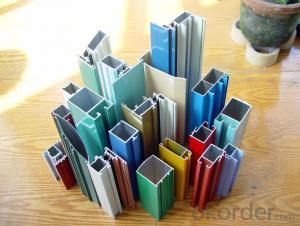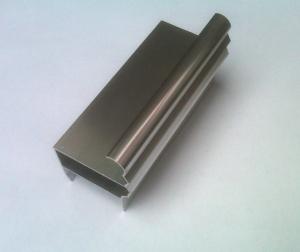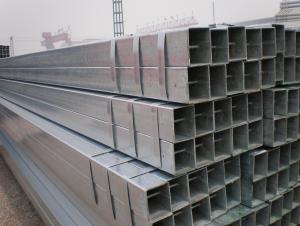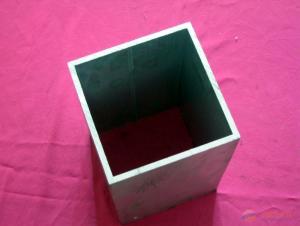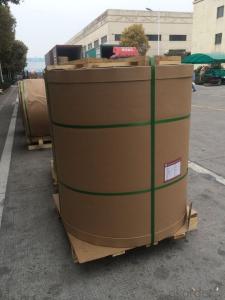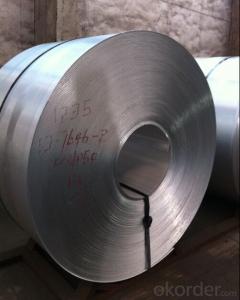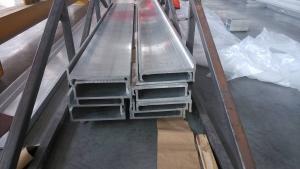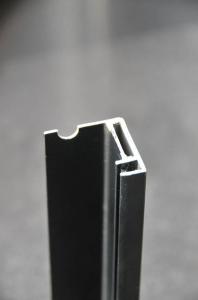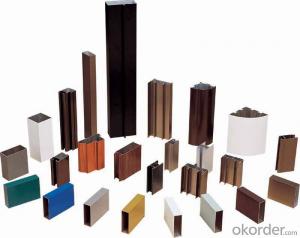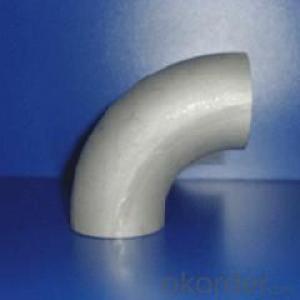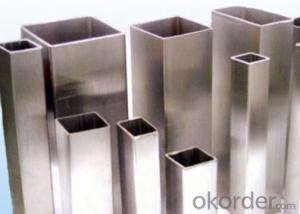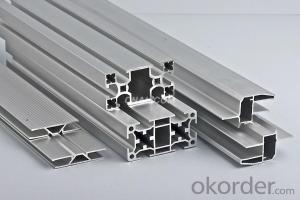Modular Aluminum Profiles:Aluminium Stocks Warehouse Price in Cheaper Price
- Loading Port:
- Shanghai
- Payment Terms:
- TT or LC
- Min Order Qty:
- 4 m.t.
- Supply Capability:
- 5000 m.t./month
OKorder Service Pledge
OKorder Financial Service
You Might Also Like
1.Structure of Product Description
Cold rolled aluminum sheet is used in the field of construction field and dration field, etc.
There are many different grades, such as: 1000 series, 2000 series, 3000 series, 5052,5754,5083,6061,6063,8011, etc.
The temper is include H14, H22, H24, H44,O,F,,H114,etc.
2. Main features of the product
a.Competitive price
b.Frist-Class Service.
c. Shortest service.
3. Image.
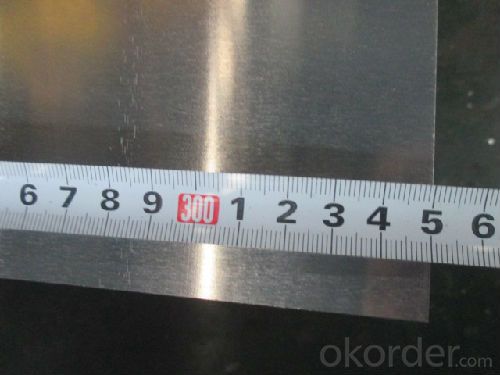
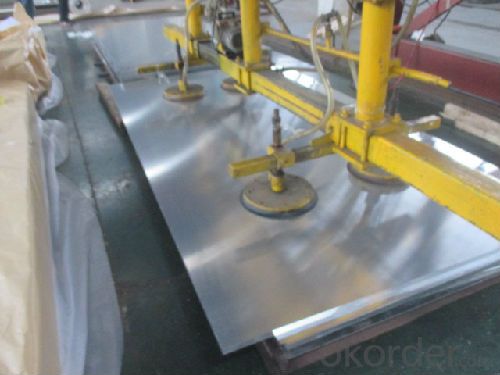
4. Product detailed sizes:
1000mm*2000mm, 1219mm*2438mm,1220mm*2440mm, *2500mm,1500mm*3000mm, etc.
5. FAQ:
What is the quality standard?
---Usually our standard is GB3880-2006 or others.
What is the width range?
---It is from 1000mm to 2500mm, etc.
---Normally it is around 9000 tons totally.
Where is your client from?
---Normally it is from Japan, USA, ENGLISH, ETC.
What is your mainly products?
---Normally they are aluminum sheet, checkd sheet, mirror finish aluminium sheet, aluminum casting coil, etc.
- Q: Are aluminum profiles suitable for structural applications?
- Yes, aluminum profiles are suitable for structural applications. Aluminum is a lightweight and highly versatile material that offers excellent strength-to-weight ratio, corrosion resistance, and durability. These properties make it ideal for various structural applications such as architectural frameworks, bridges, aerospace structures, automotive frames, and industrial equipment. Additionally, aluminum profiles can be easily fabricated, welded, and joined, allowing for efficient construction and customization. With proper design and engineering considerations, aluminum profiles can provide the necessary strength and stability required for structural applications.
- Q: Can aluminum profiles be used for modular storage systems?
- Certainly! Aluminum profiles are indeed suitable for modular storage systems. This versatile material, known for its lightweight and strong properties, finds extensive use across multiple industries due to its durability and adaptability. When it comes to modular storage systems, aluminum profiles excel in their ability to be easily cut, shaped, and joined together. By utilizing aluminum profiles, one can effortlessly construct customized storage units that can be conveniently adjusted or expanded as required. These profiles can be effectively employed to construct shelving systems, cabinets, drawers, and various other storage components. The modular design facilitates simple assembly and disassembly, enabling hassle-free rearrangement or reconfiguration of the storage system whenever necessary. Moreover, aluminum profiles boast exceptional corrosion resistance, ensuring that the storage system remains in optimal condition even in challenging environments. Additionally, they come in a wide range of finishes, allowing for customization to achieve the desired aesthetic or design specifications. In summary, aluminum profiles offer a cost-effective and long-lasting solution for modular storage systems. Their flexibility, user-friendliness, and durability make them an ideal choice, providing the desired versatility and performance.
- Q: Can aluminum profiles be used in automotive applications?
- Yes, aluminum profiles can be used in automotive applications. Aluminum profiles are lightweight, strong, and corrosion-resistant, making them suitable for various automotive components such as body panels, chassis parts, and engine components. Their use helps reduce the overall weight of the vehicle, improving fuel efficiency and performance.
- Q: Can aluminum profiles be used in the construction of modular healthcare facilities?
- Yes, aluminum profiles can be used in the construction of modular healthcare facilities. Aluminum profiles are lightweight, durable, and corrosion-resistant, making them suitable for modular construction. They can be easily assembled, disassembled, and reconfigured, allowing for flexibility in the layout and design of healthcare facilities. Additionally, aluminum profiles can be powder-coated to provide a clean and hygienic surface, which is essential for healthcare environments.
- Q: How do aluminum profiles perform in wind-resistant structures?
- The performance of aluminum profiles in wind-resistant structures is widely recognized. They possess inherent strength and durability, enabling them to endure high wind pressures while maintaining their structural integrity. The lightweight characteristic of aluminum makes it an ideal material for wind-resistant structures as it reduces the overall building load without compromising strength. Aluminum profiles exhibit high tensile strength and resistance to corrosion, making them suitable for harsh weather conditions, including strong winds. They also possess a high stiffness-to-weight ratio, which effectively distributes wind load and minimizes deflection. This characteristic is crucial in wind-resistant structures as it prevents excessive movement and ensures the safety of the building and its occupants. Moreover, aluminum profiles offer easy fabrication and customization, allowing for the creation of intricate and innovative designs. This design flexibility empowers architects and engineers to optimize the structure's aerodynamics, further enhancing its resistance to wind forces. Additionally, aluminum profiles can be combined with other materials, such as glass or composite panels, to establish a more robust and efficient wind-resistant system. In conclusion, aluminum profiles are incredibly reliable and efficient for wind-resistant structures. Their strength, lightweight nature, corrosion resistance, and design flexibility make them an exceptional choice for constructing buildings that can endure strong winds and guarantee the safety and durability of the structure.
- Q: What are the different grades of aluminum used in profiles?
- The different grades of aluminum commonly used in profiles include 6061, 6063, and 6082. These grades vary in terms of their mechanical properties, corrosion resistance, and suitability for different applications.
- Q: Are aluminum profiles suitable for electrical conductivity applications?
- Electrical conductivity applications are not suitable for aluminum profiles. Despite aluminum being a proficient conductor of electricity, the presence of an oxide layer on the surface of aluminum profiles typically obstructs electrical conductivity. Furthermore, aluminum profiles are susceptible to corrosion, ultimately affecting their conductivity. Consequently, materials with superior conductivity attributes like copper or silver are generally favored for electrical conductivity applications.
- Q: This question is asking about the various types of railings and staircases that can be constructed using aluminum profiles.
- <p>Aluminum profiles are versatile and can be used to create a variety of railings and staircases. Common types include glass railings, cable railings, frameless railings, and traditional aluminum baluster railings. Each type offers different aesthetic and functional benefits. Glass railings provide a sleek, modern look with unobstructed views. Cable railings are minimalistic and allow for maximum visibility. Frameless railings are characterized by their open design and are often used in commercial settings. Traditional aluminum baluster railings are sturdy and can be customized with various styles and finishes. These aluminum railings and staircases are known for their durability, low maintenance, and resistance to corrosion.</p>
- Q: What unique considerations or specifications are needed when utilizing aluminum profiles in cold weather conditions?
- <p>In cold climates, special requirements for using aluminum profiles include selecting materials with enhanced thermal performance to prevent condensation and frost. It's crucial to use aluminum profiles with appropriate thermal breaks to reduce heat loss. Additionally, consider using profiles with higher strength to withstand the contraction and expansion caused by temperature fluctuations. Protective coatings or finishes may be necessary to prevent corrosion from salt or other winter chemicals. Always consult with manufacturers for specific recommendations tailored to the climate conditions.</p>
- Q: Are aluminum profiles suitable for use in industrial settings like shelving and storage systems?
- <p>Yes, aluminum profiles are indeed suitable for industrial applications such as shelving and storage systems. They offer several advantages including high strength-to-weight ratio, corrosion resistance, and ease of assembly. Aluminum profiles are lightweight, which makes them ideal for constructing sturdy yet lightweight shelving and storage solutions. Their resistance to corrosion means they can withstand harsh industrial environments without rusting. Additionally, the modular nature of aluminum profiles allows for customizable designs that can be easily adjusted or reconfigured to meet changing storage needs.</p>
Send your message to us
Modular Aluminum Profiles:Aluminium Stocks Warehouse Price in Cheaper Price
- Loading Port:
- Shanghai
- Payment Terms:
- TT or LC
- Min Order Qty:
- 4 m.t.
- Supply Capability:
- 5000 m.t./month
OKorder Service Pledge
OKorder Financial Service
Similar products
Hot products
Hot Searches
Related keywords
